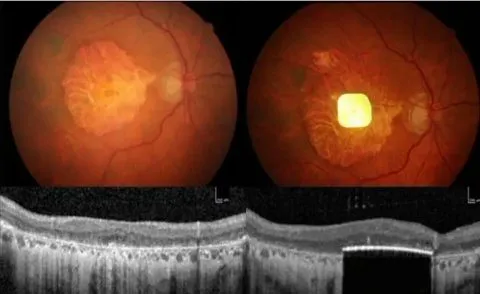New Delhi, Oct 20: A wireless retinal implant showed potential to restore central vision in patients with advanced age-related macular degeneration (AMD), according to clinical trial results published on Monday.
Advanced atrophic AMD, also known as geographic atrophy (GA), is the leading cause of irreversible blindness in older adults, affecting more than 5 million people worldwide.
The study, led by researchers from the University College London, University of Pittsburgh, and Stanford Medicine revealed that 27 out of 32 participants had regained the ability to read a year after receiving the device.
The device, called PRIMA, is the first eye prosthesis to restore functional sight to patients with incurable vision loss, giving them the ability to perceive shapes and patterns — also known as form vision.
“It’s the first time that any attempt at vision restoration has achieved such results in a large number of patients,” said José-Alain Sahel, chair of the Department of Ophthalmology at the University of Pittsburgh’s School of Medicine, US.
“More than 80 per cent of the patients were able to read letters and words, and some of them are reading pages in a book,” Sahel said.
The study, published in the New England Journal of Medicine, showed that over 81 per cent patients achieved clinically meaningful improvements in visual acuity while 84 per cent reported using prosthetic vision at home for reading numbers or words.








